Why no Slavic country supports Russia?
Yes, I know, Belarus. But they are not free to choose, are they?
In February 2022 the US Embassy in Kyiv posted the above meme on their Facebook, causing some applause, but also some uproar. “You’re creating divisions in the Slavic world!” - said some people who clearly imagined a fairy tale world where all Slavic nations were united.
This never happened. There was a brief period of 1945-1948 when Stalin seemingly had all the Slavic nations under his yoke, but his control of Yugoslavia was nominal at best, and it ended after his split with Tito.
The question why we don’t want to live in a common pan-Slavic country is a valid one. I understand why people in the West ask it - I also always found it hard to grasp why there is Spain and Portugal. Or Sweden and Norway. Or US and Canada. When you look from our perspective, their culture also seems very similar.
Before I try to answer, check the map below. It shows the largest area ever controlled by Kyivan Rus - a medieval empire commonly seen as the cradle of Russian culture. This map shows it at the end of its glory, soon the Mongolian/Tatar invasion of the Golden Horde will erase it from map forever.
Even before the invasion, Kyivan Rus was already crumbling under feudal fragmentation - you see some splinter states emerging. Please notice the absence of Moscow.
Yuri Koryakov CC BY SA 2.5
First of all: you must realize that at this point Slavic states already existed to the west of this area. Contemporary Poland, Czechia, Serbia, Croatia etc. claim to be their direct descendants. Even Slovakia, though a state with this name never existed prior to 1939, claims to be a descendant of the Principality of Nitra.
These claims are more or less dubious. Unlike France or England, no contemporary Slavic country can claim an uninterrupted continuity with their 9th century predecessor. Not even Russia!
We all had a period of “being absent from the map” - overrun, partitioned, subdued by the Habsburgs, Ottomans, Germans, Russians, Swedes (crazy! I know!), and whatnot. Our most important literary works often explore this topic - how “we” lost our statehood, how “we” maintained the national spirit during the time of oppression, and how “we” won our well-deserved comeback.
I put “we” in quotes, because when a country disappears from the map and reappears centuries later, is it still the same country? This is actually irrelevant here, because - as the poet Dandelion/Jaskier likes to say in the “Witcher” franchise - it doesn’t matter what happened, what matters is how I describe it in my ballad. Very Slavic approach!
Dandelion (Jaskier) and Geralt The Witcher. © Netflix.
While there is no direct continuity between the medieval Kingdom of Poland and the contemporary Republic of Poland (the same goes for Croatia, Serbia, Czechia etc.), we “feel” emotionally connected to “our” ancestors. This is a very important factor when you try to understand Central-Eastern European politics.
The average German doesn’t think too much of Henry the Fowler. But in Slavic countries, we put our medieval kings on our banknotes, we name our streets after them and decorate them with their monuments, and most important of all: our bestselling books and blockbuster movies are often about their times.
You don’t have a William The Conqueror street in London, but you will find a Boleslaw The Brave street in most Polish cities. We would probably have dedicated some small alley even to Aethlred the Unready, had he been our king.
This goes down to very small details. Should you ever visit Krakow, you will notice two things. One is the trumpet call, played every hour from the highest tower of the Gothic cathedral. The tune ends up abruptly with a false note.
There’s a legend that this is done to honour the city warden who played the call to warn the people of incoming Mongolian invasion in 13th century. They shot him with an arrow, but the citizens of Krakow had the time to close the gates.
This legend is completely fake. It was first reported by an American in Krakow, who was played for a fool by the locals. For starters, Krakow was sacked by the Mongolians in 1241. Unfortunately there was no trumpeter to save the day.
Just like the Dandelion’s ballads - truth doesn’t matter! What matters is that every child in Poland knows the legend. On every day precisely by noon the trumpet call is transmitted live by radio Warsaw One from Krakow (another medieval tradition, of course!) and we used to set our watches by this signal. In the days of the Internet this makes little sense but canceling this tradition would cause street riots.
So if you’re in Poland, you will likely hear this tune by noon in a café or restaurant, provided their radio is tuned to Warsaw One. On top of that, please meet Lajkonik - a semi-official mascot of Krakow, a weird dude with a wooden horse, dressed in faux-Oriental clothes, sporting fake beard.
A mural with Lajkonik. Photo: Mateusz Drożdż, CC BY SA 4.0
This legend is medieval (this time, for real: there are sources tracing it back to the 14th century). Lajkonik is your friendly invader, who came for pillaging and raping, and stayed for the party. Krakow is full of his images and the people cosplaying him on the street of Krakow will provide you a great photo opportunity (for some small change).
And it’s not that we conmemorate only this Mongol invasion from 13th century. We put a lot of attention to the subsequent invasions, wars and uprisings from the 14th, 15th, 16th, 17th, 18th, 19th and - of course - the bloody awful 20th century.
Every day we give a lot of thought to all of that. We do it even during such mundane task as boarding a train (Intercity Lajkonik Gdynia-Krakow) or setting the watch. Metaphorically speaking, our watches are set to the 1241 timezone.
This is more or less true for all the Slavic nations, even Russia. Western politicians often forget about it. They like to talk about the present and the future, and we always feel the need to talk about our past (notice I am doing it right now!). Should you ever negotiate any deal with a Central-Eastern country, consider building your pitch in the following manner: “Your great king Tomislav would certainly approve the deal I’m offering” (NOTICE: don’t refer to the Croatian king when in Serbia, to the Serbian king when in Bosnia, etc.).
Below you will find a memory of an immensely successful advertising campaign of 1990, when a modern washing powder was associated by a very twisted-yet-funny way to the Polish-Swedish war of 1655. It inspired a series of copycats, increasingly twisted and decreasingly funny.
Let’s return to our map of Rus. In 1236-1241 the invasion of Batu Khan destroyed almost all of the splinter states and Rus disappeared from the map forever.
Wait, what… forever? Yes. Russia is not the same as Rus (Ruthenia). Every European language has a way to differentiate them (in Russian this is “Rossiya” versus “Rus”).
Rus is a broad name for all nations with Ruthenic culture - currently Belarus, Ukraine and Russia. Russia emerged from the Grand Duchy of Moscow, a splinter state of the Principality of Vladimir-Suzdal, itself a splinter state of the Kyivan Rus.
There is even a third word: Rusyn. It denotes the people with Ruthenic/East Slavic culture who do not identify with any mainstream Slavic nation. During the multiple ethnic cleansings in last century they were forced to make the choice (“are you Polish or Ukrainian?”) literally at gunpoint, so very few of them remain.
Russians see themselves as the only legitimate sucessors of the Kyivan Rus, but this is not something you can prove or disprove. It’s not scientific. It’s just a ballad sung by their Dandelions, while our Dandelions are singing other songs.
How exactly did the Grand Duchy of Moscow appear on the map? Their Dandelions sing a song of how Alexander Nevski and Ivan Kalita played a shrewd game with the Mongolian invaders. For more than two centuries they pretended to be the loyal vassals of the Khan waiting for the right moment that came in 1480. They liberated themselves from the Mongol yoke and subsequently reunited most of the Ruthenic lands (but never all of them, since in the meantime the Polish-Lithuanian union took the White and Red Ruthenia, preserving the nuclei of the future Belarus and Ukraine).
Our ballads are different. We emphasise the fact that the Grand Duchy of Moscow owed its prosperity to the Mongol invaders. The princes of Moscow were the Khan’s favorites - up to the point where they sent their armies to help the occupier to pacify the anti-Mongolian uprisings in the other Ruthenic cities.
Russians killing Russians in the name of the Mongols! That’s a big no-no in Slavic culture. We cherish the heroes who would rather die than bow to the occupier, such as the brave prince Mikhail of Tver, executed by the Mongols in 1318. The obedience of the princes of Moscow seems to us slightly… how to say it? Un-Slavic.
The ethnic slur for the Russians, popular in the other Slavic languages (notably Poland and Ukraine), is “katsaps”. Allegedly it is derived from a Turkish word for a Tataric beard, and thus it contains a not-so-subtle allusion that “they are not even real Slavs!”. I am of course against any use of any slur words, I just mention it for the reference.
And by the way: all mentions of “Mongolia” or “Tatars” contained herein refer exclusively to the middle ages. The contemporary Mongolian state is peaceful and democratic, a shining example to follow. And the contemporary Tatars are everybody’s favourite ethnic minority in the Slavic countries, especially in Poland.
When people in the West ask the question “is it possible to coexist with islamic minorities”, we have over 5 centuries of peaceful multiculturalism with the Polish Tatars. Once they gave up that pillaging thingy and settled down, they turned out to be very nice fellows. Maybe there is a grain of truth in the legend of Lajkonik?
Meanwhile, in Moscow… the status of the “Khan’s preferred princes” allowed the rulers of Moscow to conquer most of the other Ruthenian cities. In mid-15h century they were powerful enough to call themselves the Sovereigns of all Rus.
Prince Ivan III married the last Byzantine princess, Zoe Palailogos and claimed himself the emperor (tzar): the heir of the fallen Byzantine Empire. He adopted the Byzantine crest (double-headed eagle) and - crucially - the Byzantine court rituals, where the emperor was idolized like a deity.
The Oprichniki by Nikolai Nevrev (1888). Ivan The Terrible enjoys the execution.
Thus they further have alienated themselves from the rest of the Slavic world. You see, we like our kings, our presidents and even our military dictators, to be (or at least pretend to be) “like the rest of us”. We want them to be “the first among the equal” (“primus inter pares”).
We idolize the warrior kings who shared the tent with their troops or the urbanite kings who walked the streets and talked to the common people. The Polish military dictator of the 1920’s famously insisted on traveling in regular train in the second class compartment. Again: that’s just the ballads our Dandelions are singing, but they show what kind of leaders we want to have.
When we see Putin sitting at the royal end of his long table - we see something decisively un-Slavic. The contemporary Russian leaders inherited the customs of the bolshevik leaders who inherited the customs of the tzars, built on a fusion of Mongolian/Tataric Khans and the Byzantine deified emperors.
When the tzar received his subjects, there were supposed to lie down in prostrate position (arms outstretched, face down) and bang their forehead on the floor. We had our Slavic word for headbanging - czolobitnosc - long before the heavy metal music was invented in the West!
Tzar Paul I (in)famously extended this ritual in 1800 to everyone unfortunate enough to meet him in the street. No matter how dirty it was, you should drop face down in the mud to show your respect for the sacrosanct tyrant. Is it so weird that we, the other Slavs, never wanted to have leaders like this? Would you want to have one?
In 19th century, when Poland was not on a map (remember?), the word “Byzantine” was used by the Polish writers to bypass the Russian censorship. “Tell me you criticise Russia without telling me you criticise Russia” “Sure thing, mate - gosh, I hate Byzantium!”.
Even today “Byzantine” is used in common parlance as a metaphor of alienated, arrogant, abusive power. If you don’t know our history, you could wonder whatever Constantinople did to offend the Poles that we still hold the grudge.
While the prostration before Putin is no longer required, the Russian leaders never mingle with their subjects on the street. They enjoy special street lanes, reserved for the top Kremlin apparatchiks. Being stuck in a traffic jam on Kutuzovsky Prospect and watching the empty “nur fur Kremlin” lane can be equally humiliating.
Kutuzovsky Prospekt with the Kremlin lane in the middle, mos.ru CC BY 4.0
When you belong to the other Slavic - or even Ruthenic - nations, you don’t see it as a part of your culture. On the contrary, you see a horrible crossover of the barbaric Khans and the alienated emperors - Genghis Palailogos, not the good old king Slavyansky.
This is one of the reasons pro-Russian politicians stand no chance to win the election in any Slavic country (including Serbia, their traditional ally). Panslavism is politically dead and it died long time before this war (that’s why we were all so eager to join NATO and EU as quickly as possible).
At the beginning of the war Joe Biden visited a military unit in Poland and shared a pizza with the common soldiers. They tricked him into having pepperoni jalapeno and he finished it bravely with a smile (you could notice tears of pain in his eyes, though).
I don’t know if it was spontaneous and I don’t know how it was received in the West - but I know this is how you win the hearts and minds in the Slavic countries. You win them by sharing a meal with the common folks - not something fancy-shmancy helicopter-delivered from a Michelin star gourmet restaurant “Le Pizza”, but a casual $8 pizza your average Kowalski has for lunch.
I understand that all politics is theatrical and this was probably staged by the White House staffers well-versed in the Slavic culture (Scholz and Macron could use their advice). Please notice how the pizzeria owners refer to this episode.
They renamed this particular pizza as “Ostry Joe”. It’s a double entendre, because “ostry” in the gastronomical context is literally “spicy”, but when associated with a name, it looks like a nickname, something between “Harsh Joe” and “Joe the Blade”. This is why the word “ostry” is mentioned twice: once in the pizza name and once in parentheses (“caution: SPICY!”).
The restaurant owners were certainly proud of becoming overnight a symbol of the Polish-American friendship, they scored some interviews, but please notice they don’t brag about it on their website. There’s just a discreet US flag in the backdrop. Taking it too seriously would be too Byzantine, their regular customers wouldn’t like it.
They didn’t name it “Presidential’s pizza” or “Joe Biden’s pizza”. They choose “Spicy Joe”, turning it into a joke, evoking a Dandelion’s ballad of the legendary Slavic warrior king - “Ziutek the Harsh”.
Now, imagine Vladimir Putin sharing $8 pizza with common soldiers. You can’t? Me neither. Congratulations, I think now you understand why no Slavic nation wants to join the “Russian world” (even if they consider themselves Ruthenians).




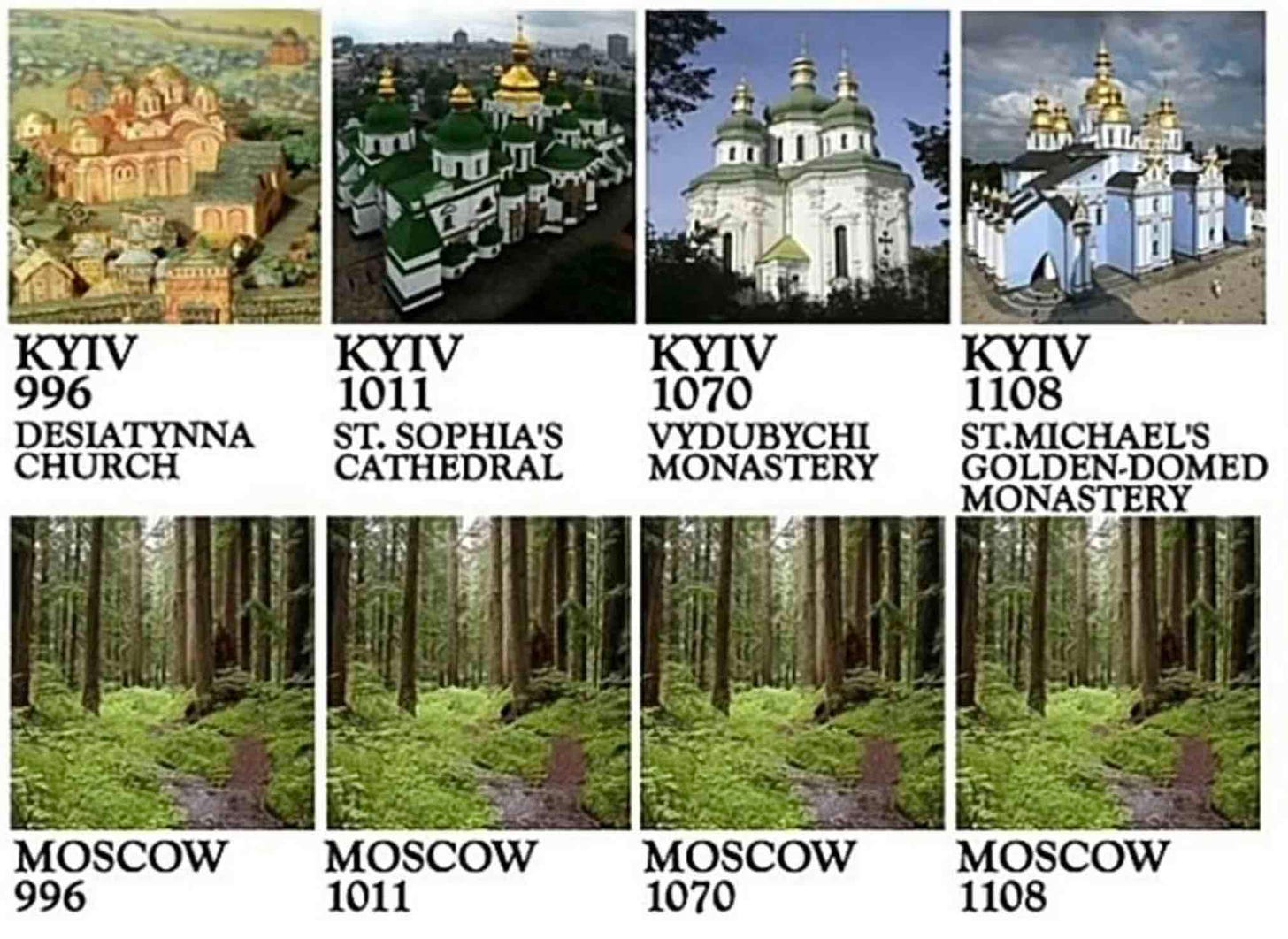
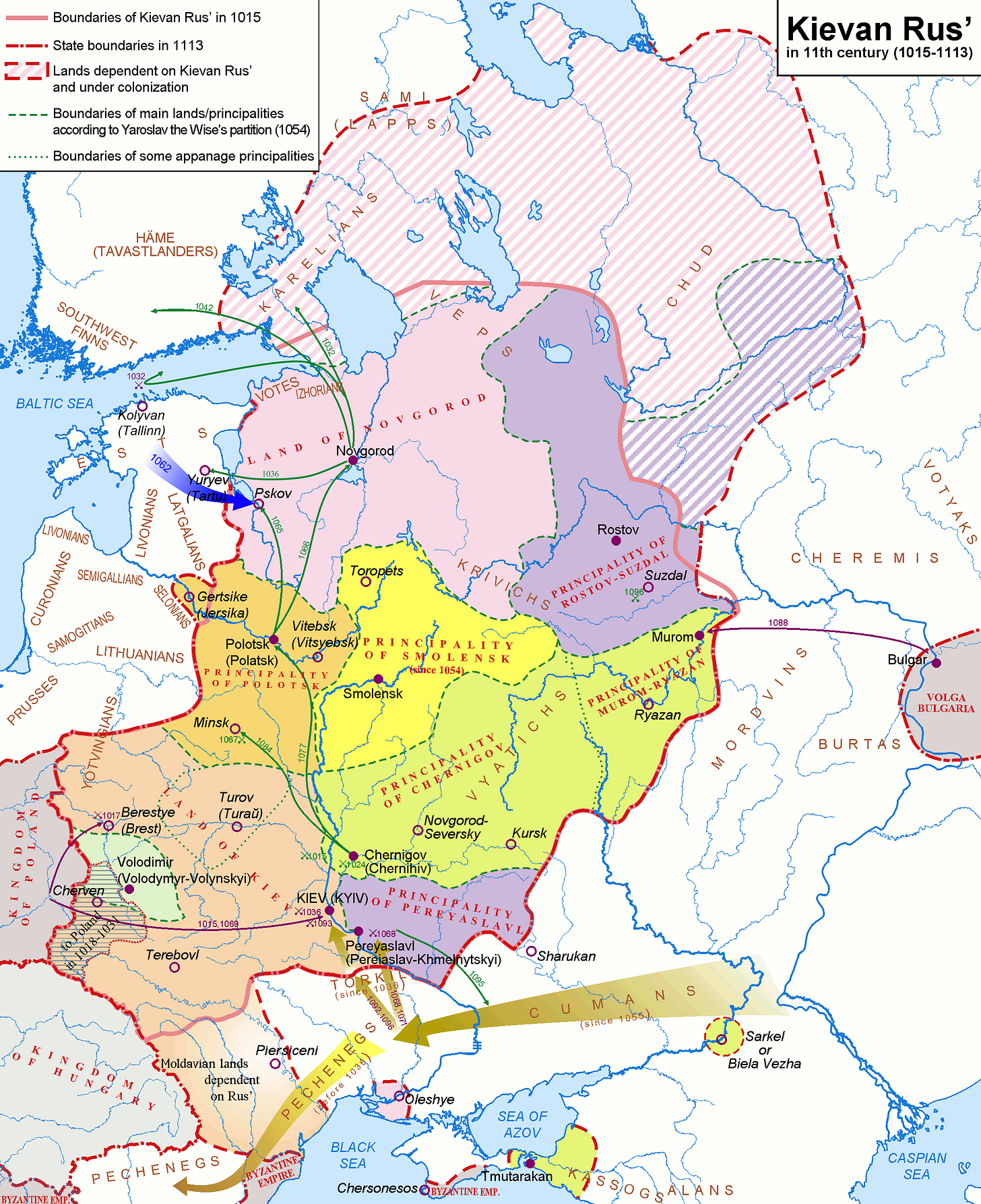
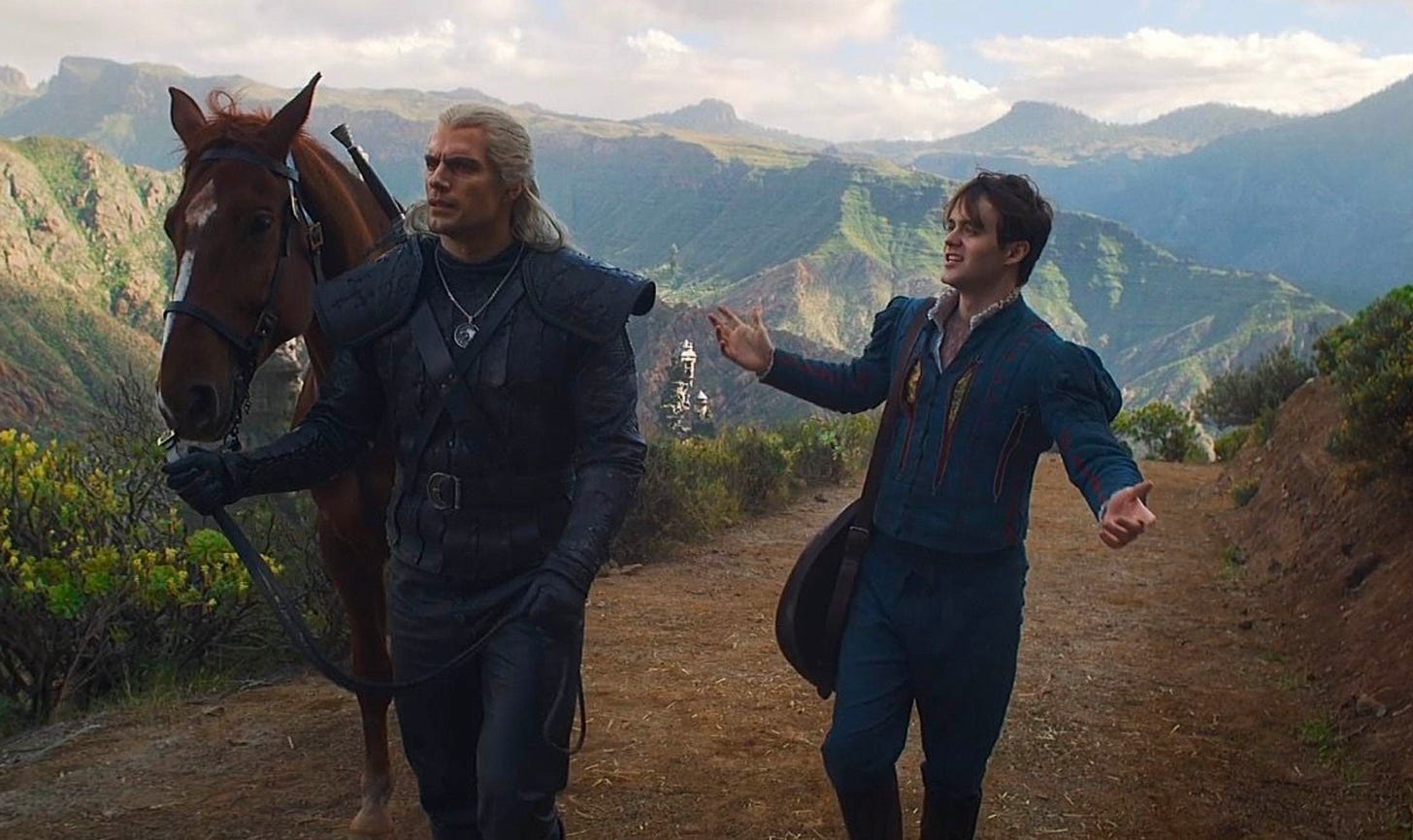
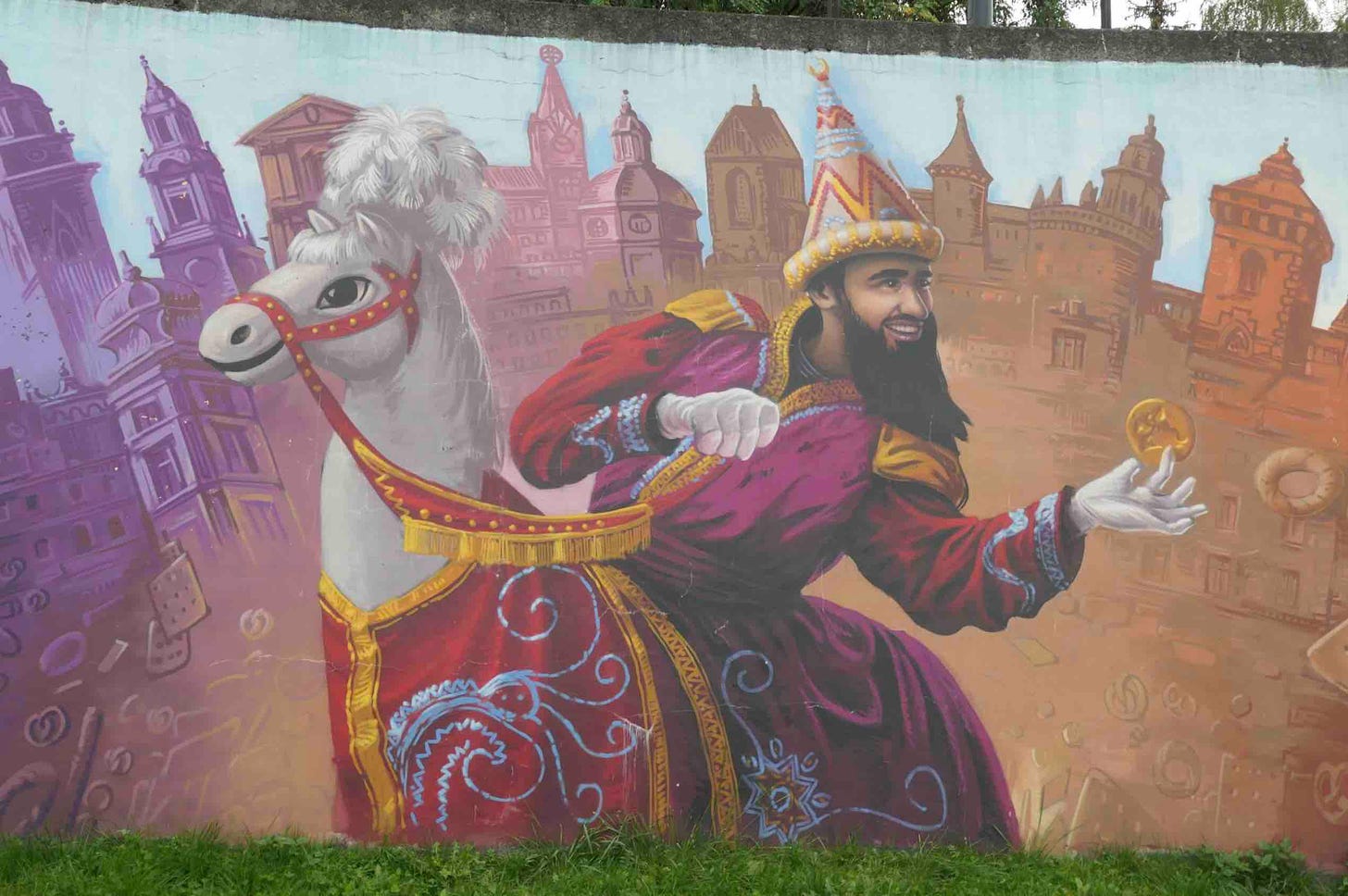
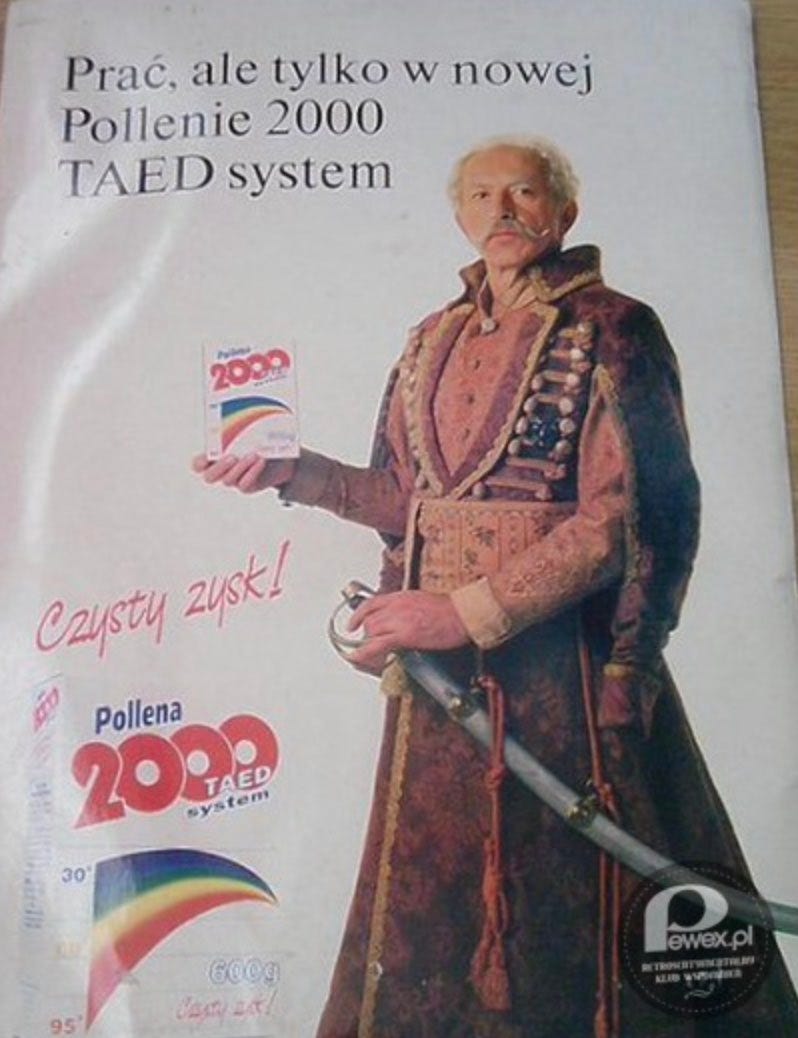
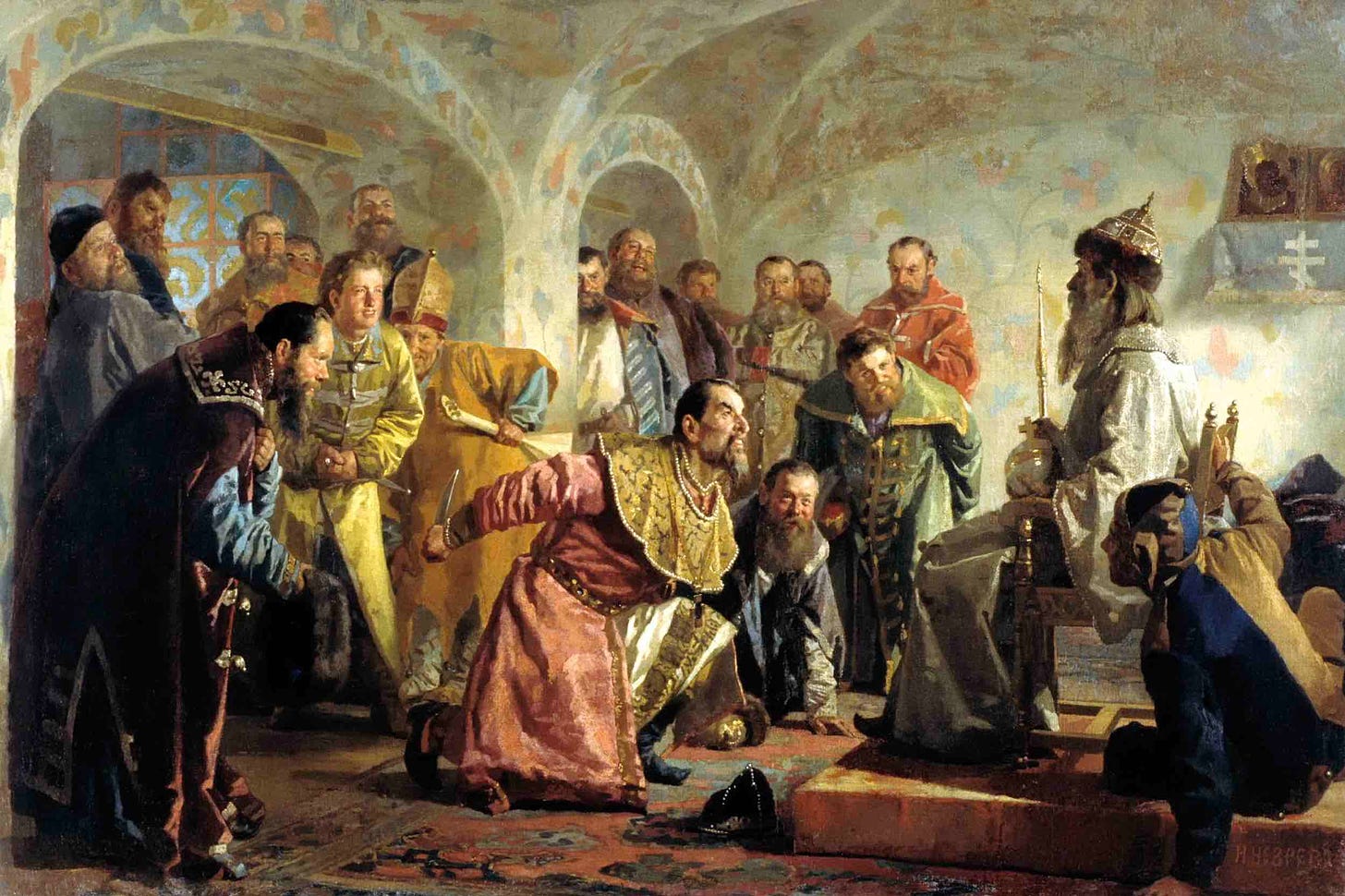
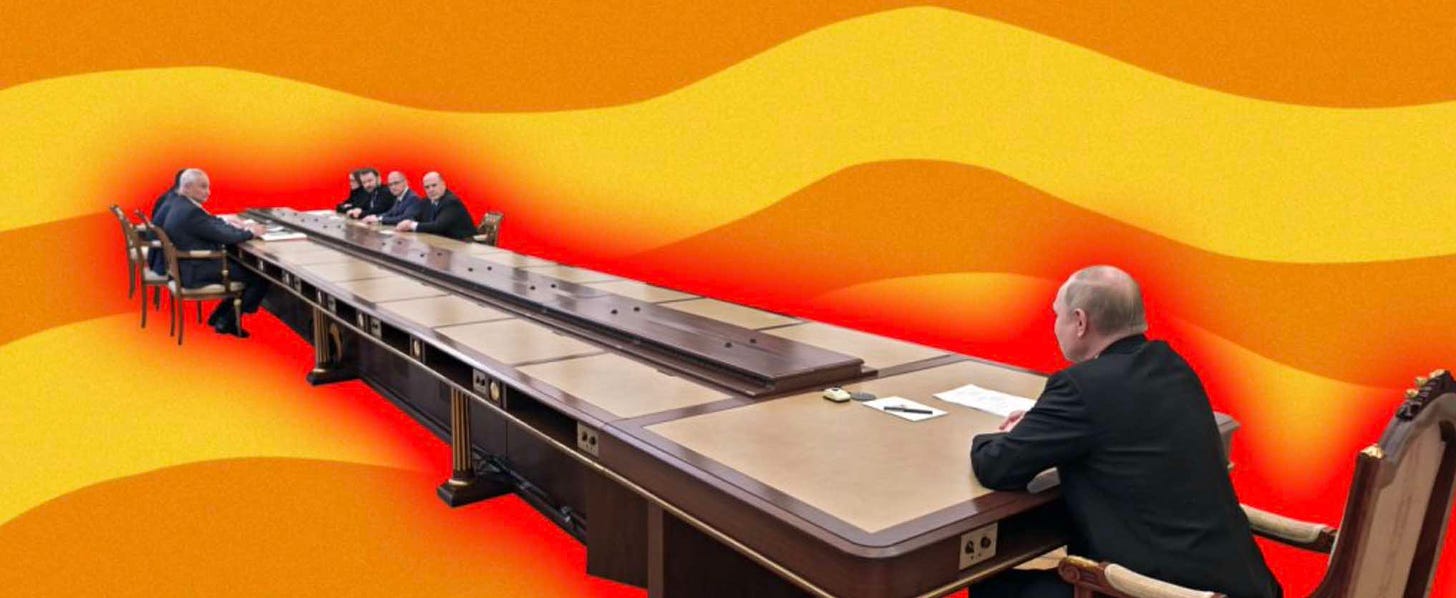
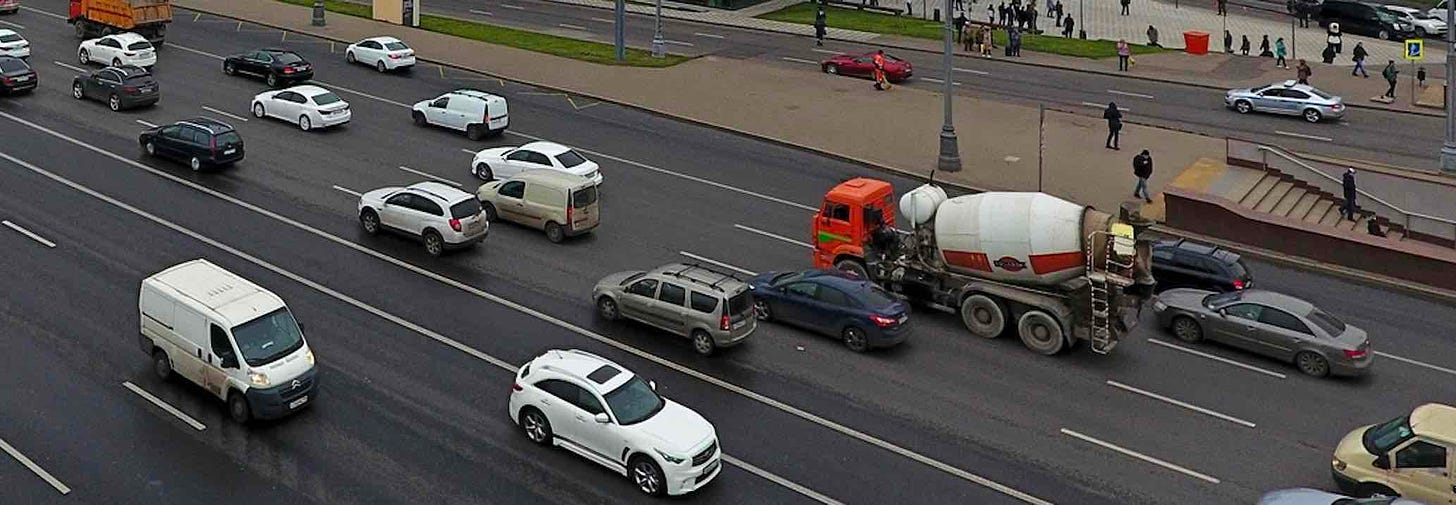

I have read this one with pleasure. Interesting with a witty style of anecdotic explanation which works great on my imagination. Will be waiting for more. Thank you.
"Just like the Dandelion’s ballads - truth doesn’t matter! What matters is that every child in Poland knows the legend." My favourite line. It also explains Zelensky's behaviour. I appreciate this lesson in Slavic history and relate to the sentiment. People speak of Africa and the Caribbean as if they're monolithic as well.